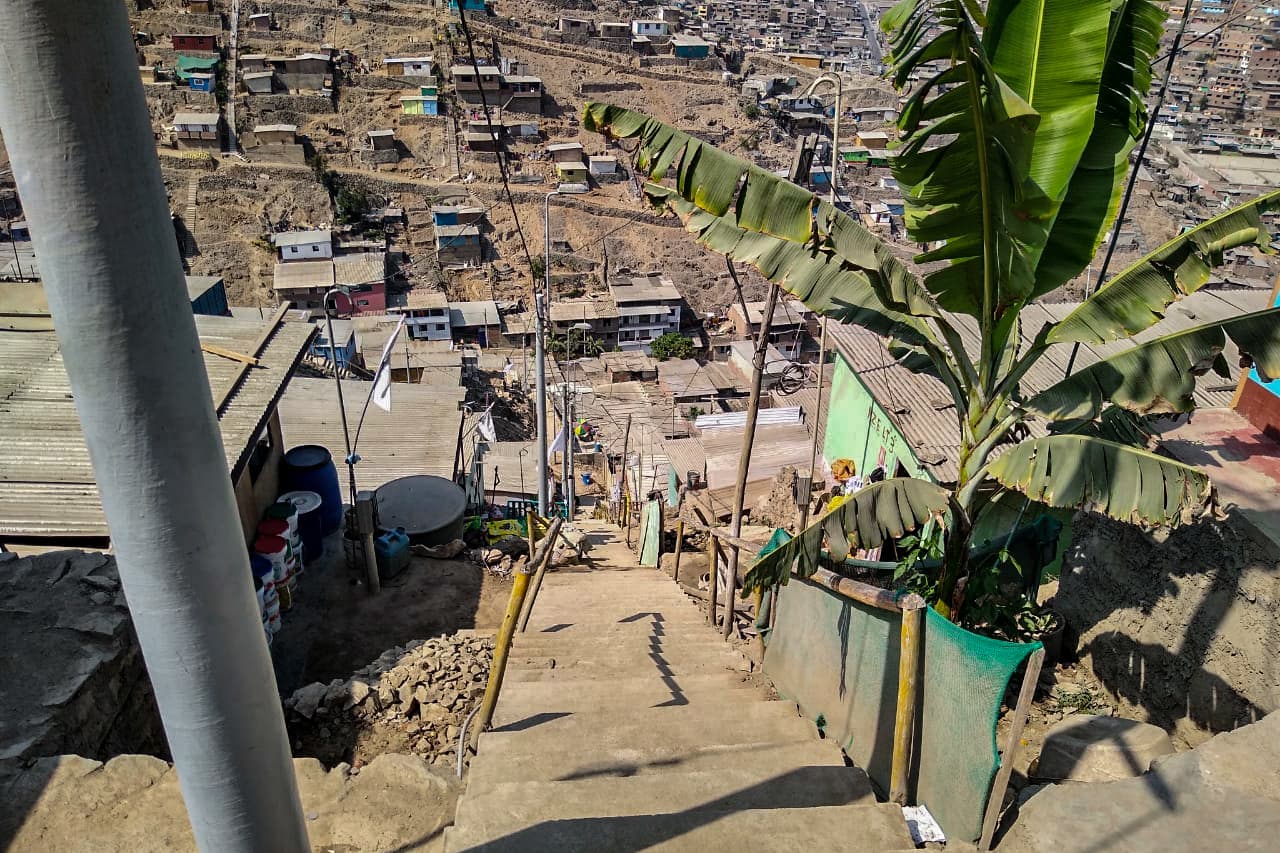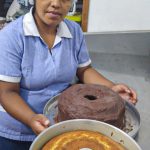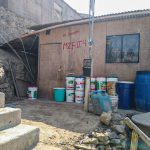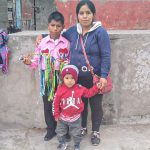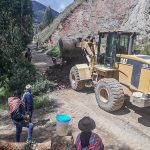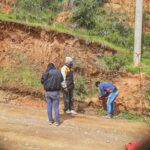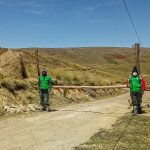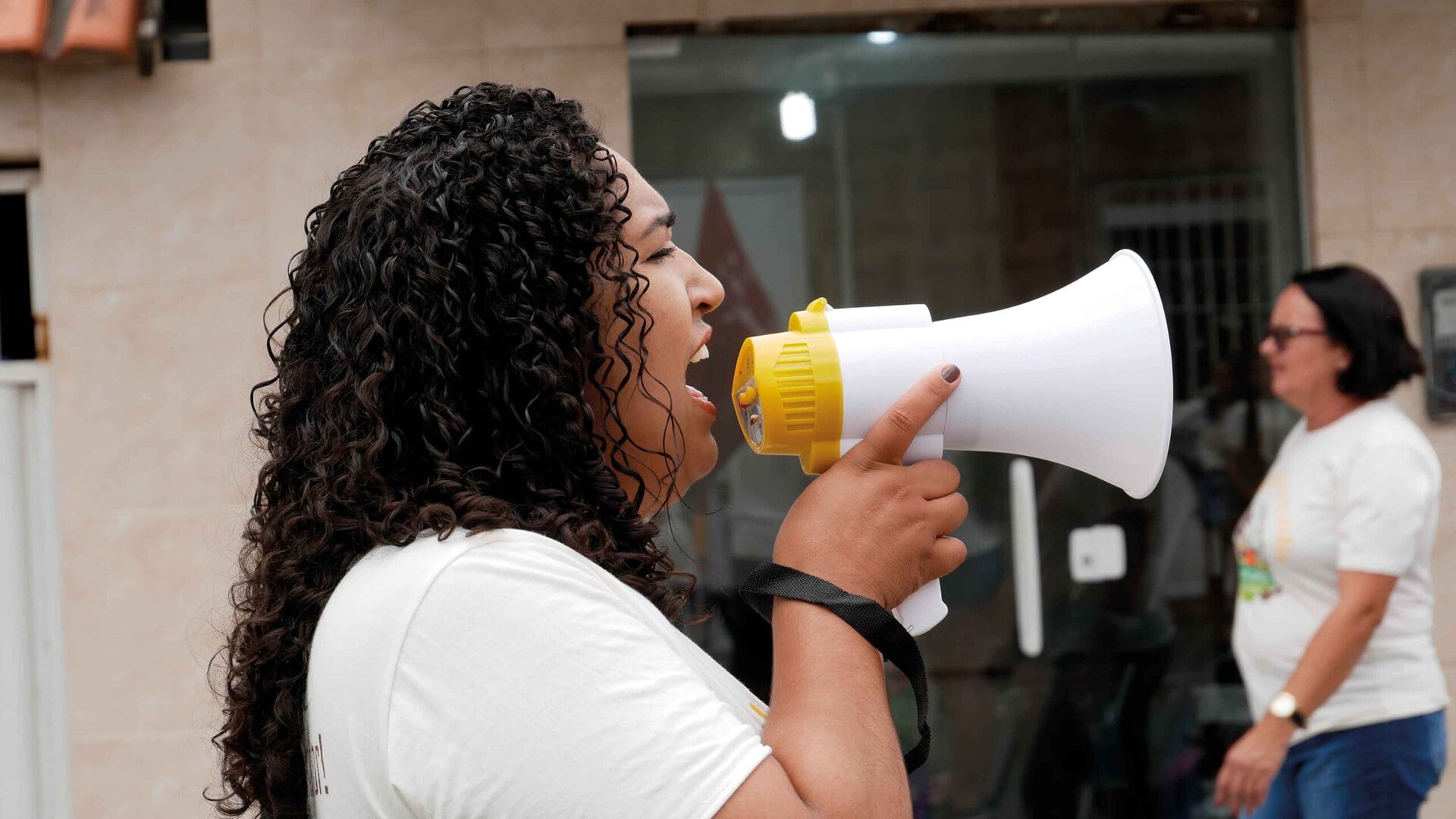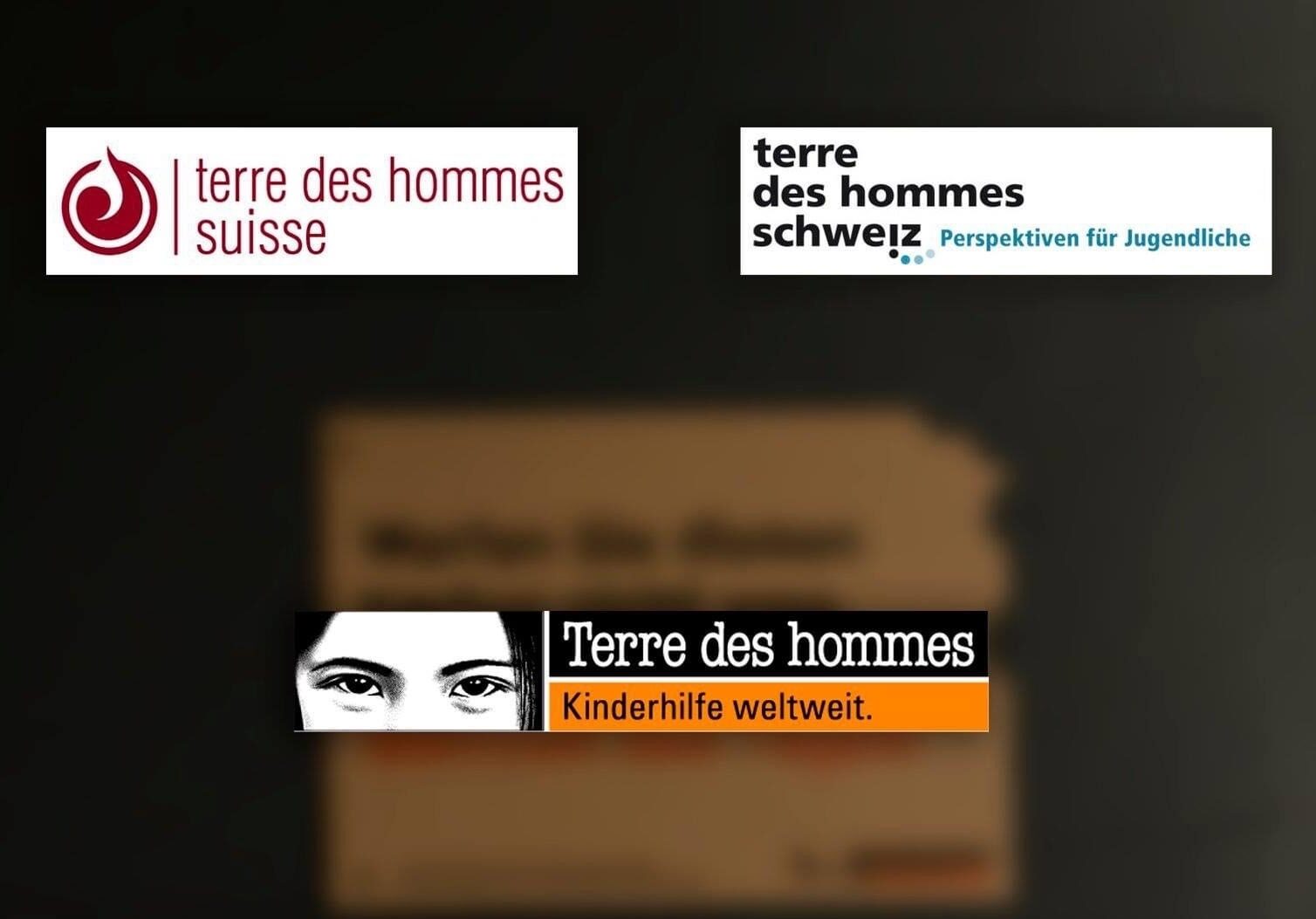In Peru’s big cities, more people lose their jobs with every day of lockdown. Most of them fall through the cracks because they work in the informal economy without social security. Fearing destitution, many of the unemployed are now heading home to the provinces to support themselves.
Jannet Villanueva, our country coordinator in Peru, reports that there is not much sign of the lockdown and curfew in the poor districts of Lima. People go to the market there as if nothing is wrong; hardly anyone can keep the minimum distance. “Recently, an authority took random samples at a large market on the outskirts of the city and found 170 positives in a short space of time,” says Jannet.
There is a high risk of contagion on the streets. More and more people who have lost their jobs and homes during the crisis are now gathering there. It is almost impossible for homeless people to keep their distance and wash their hands regularly. A breeding ground for the coronavirus, which has now infected over 49,000 people in Lima alone and 76,000 throughout Peru. It is doubtful whether the relatively low number of registered deaths of around 2170 people is correct.
The Peruvian capital has been growing at a rapid pace since the 1960s. Tens of thousands of people come to the metropolis every year. In the last ten years, the city has grown by around 1.7 million people to 10.7 million inhabitants. The other cities are growing just as fast, although the second-largest city, Arequipa, only has around one million inhabitants.
Gudelia’s story
Many young people come from the countryside, from the Andes and the Amazon lowlands. They seek their fortune in the big cities. Among them are many young girls who are employed as housemaids and are often exposed to abuse by their employers. terre des hommes schweiz supports a project to improve the living conditions of housemaids.
One former housemaid from this project is 29-year-old Gudelia. Her parents were small farmers who had to feed their 10 children with only a little land and livestock. Gudelia moved to Lima when she was 19; her 9 brothers were already in the big city at the time. Here, in addition to working as a housemaid and having a second child, Gudelia was able to complete her education.
The project for housemaids at terre des hommes schweiz taught her the value of social security and her rights. “That’s why she worked towards a formal job to secure her livelihood and that of her two children,” says Jannet. The work of terre des hommes schweiz is bearing fruit.
Gudelia is determined and has the luck of the brave: she is able to work her way up to cake baker via a job as a cleaner in a bakery – with an official contract and social insurance.
That doesn’t mean she has reached the middle class. She earns 430 euros a month. “That’s only just enough for the most important expenses: School fees, food, clothes, healthcare and transportation costs,” says Jannet. “Informal work without a contract often brings in a little more. But there is no security.”
Defenseless in the crisis
Gudelia thus belongs to the minority in Peru, as only around 30 percent have a contractually regulated job. More than two thirds of people work in the informal economy, in the informal sector, for example as hawkers, cleaners or factory workers. For these workers, the lockdown poses a threat to their livelihoods. At any moment, they could lose their entire income, which they use to pay their rent, food and children’s school fees.
This is what happened to all nine of Gudelia’s brothers. One of them complains to Gudelia in despair: “We have no money to pay for our room. My partner and I have lost our jobs and can’t look for work. Not even something small like washing cars or being a street vendor.” That was on April 10, when the lockdown had been in place for over a month and there was no sign of it ending.
Like many people working in the informal sector, Gudelia’s brothers only have a small apartment with no water and only rarely electricity. The families now live there in a very small space. School lessons continue online. “But we don’t have a computer or a cell phone. Our children can’t take part in the lessons,” writes one of Gudelia’s brothers. Every month that passes brings a new rent bill.
On April 15, it is clear that the curfew will remain in place. It is enforced rigorously and with prison sentences. “The problem is not the police, but the military,” says Jannet. “They are not used to dealing with the civilian population and always react disproportionately.”
Some of Gudelia’s brothers are thinking about returning home. Without work, food, school and the prospect of an end to the crisis, they don’t have much left in Lima. It is an escape – an escape into the past. “On the farm you always have something to eat like potatoes and wheat, the people are friendly and you help each other. And the children have space to play. We’re going!” writes one of Gudelia’s brothers. The family sets off on foot, as there is no longer any public transport. 500 kilometers through the foothills: the despair is immense. Thousands make the same journey.
Villages barricade themselves in
Shortly after the pilgrimage has set off, the government comes to its senses. Buses are to take the families to the provincial centers. “We’ve been waiting for five days now,” write the four brothers who set off on April 20, “We and the 1500 or so other people had to sleep on the side of the road. Everyone: old people, young people, children. Everyone is desperate.” After this news, it took another two days for the buses to arrive.
Runaways are not welcome. The villages barricade themselves off for fear of the coronavirus.
“They were tested before departure. Four were infected and weren’t allowed to go. When we arrived, we were tested again. There are now 50 infected people. We are in quarantine tents in the stadium and have to stay here for 15 days before we are allowed to continue. Everyone is worried because some have fled along the way and could bring the virus into the communities. The virus made me flee Lima and impoverished my children. If it reaches my home before I do, where else will I flee to?” So writes one of her brothers from Huancavelica.
The news of those who have escaped has already reached the villages. The fear of the virus is great. That is why the communities are sealing themselves off to stop the runaways. Quarantine is the only guarantee that the virus will not spread further in the countryside. There are no medical tests here.
Rapid aid for Peru
Many people have lost their livelihoods and the country therefore needs international aid quickly. But the long-term consequences could also undo the progress made in the fight against poverty, for the protection of minorities and for equal rights.
It remains to be seen how many people will return from the city to their regions of origin during the coronavirus crisis. If the rural exodus could be slowed down in the long term or even reversed to a small extent, the people of Peru would benefit from this.
For too long, the expansion of infrastructure lagged behind the sustained and rapid growth. Young people who moved from the countryside rarely found good conditions in the big cities. They ended up in poverty, were exposed to all kinds of abuse and only a few managed to make the leap into a secure existence, like Gudelia.
Peru has greater opportunities if young people get involved in the countryside, become innovative there and run smart businesses with organic farming. This is what terre des hommes schweiz is working towards with its projects in Peru. For example, we help coffee farmers to improve their quality in order to generate more profit. Young people absolutely need outside support for such projects. Initially, however, the focus is on providing help quickly.
Help terre des hommes schweiz to disseminate vital information and implement hygiene measures now.
